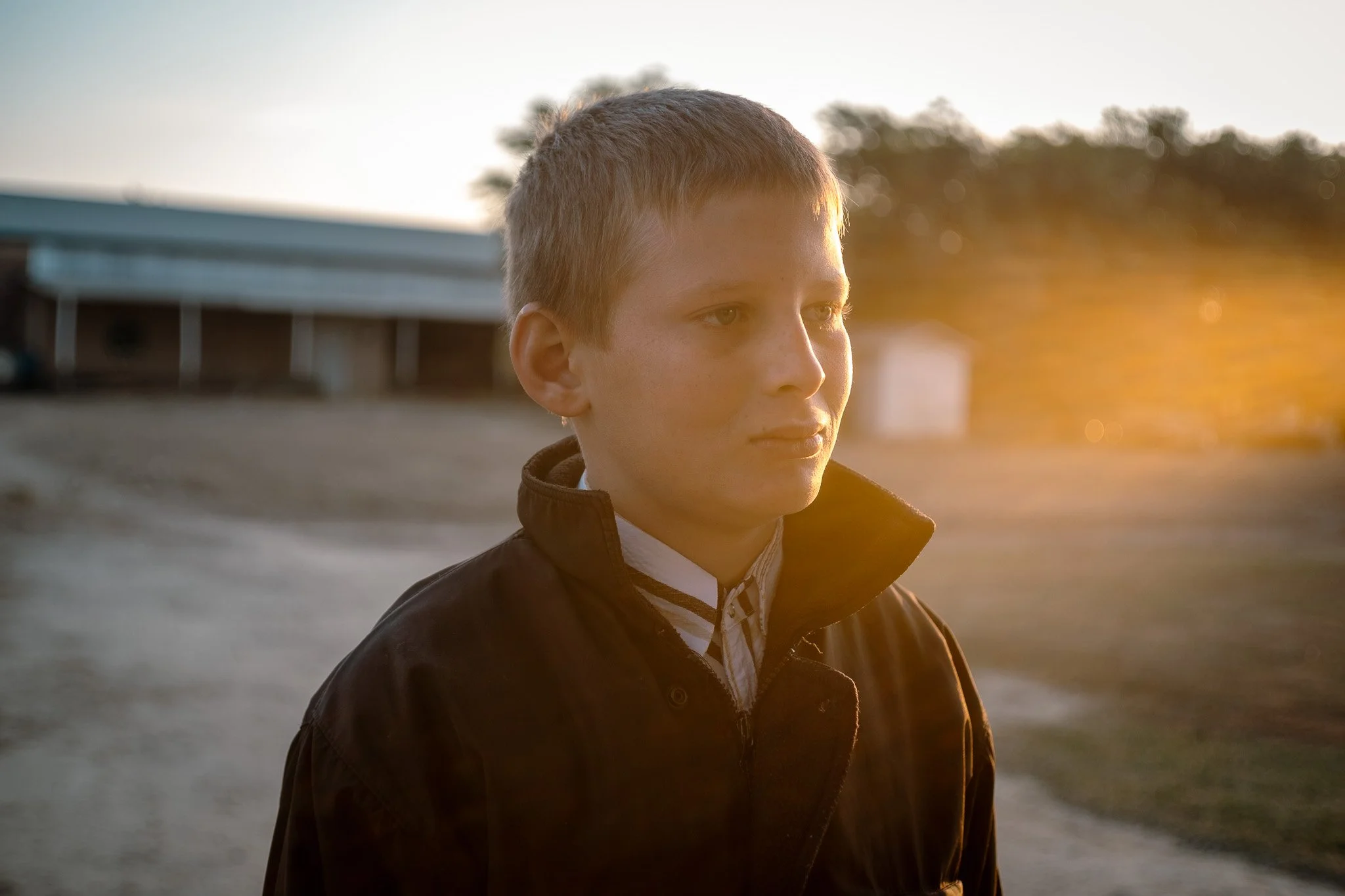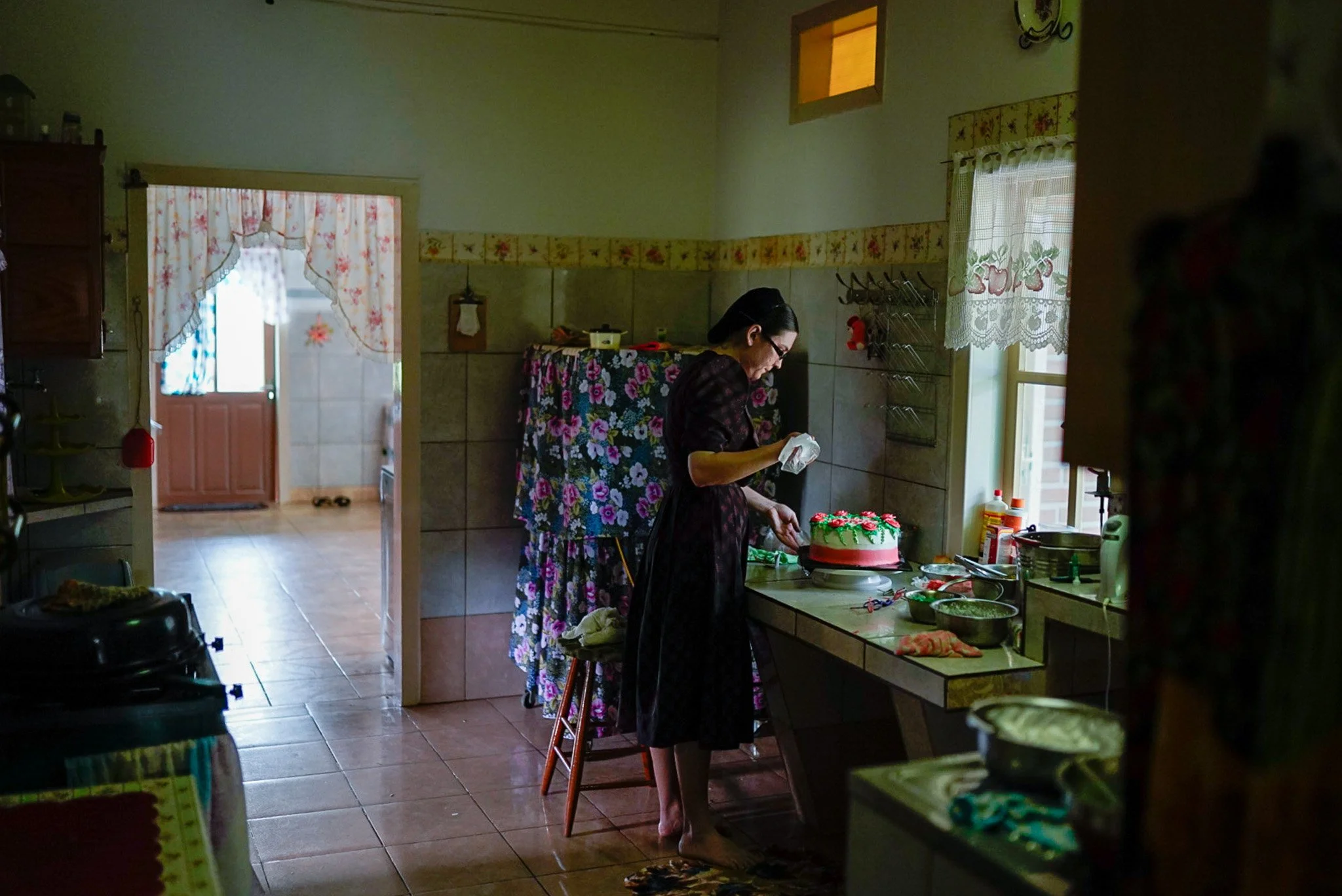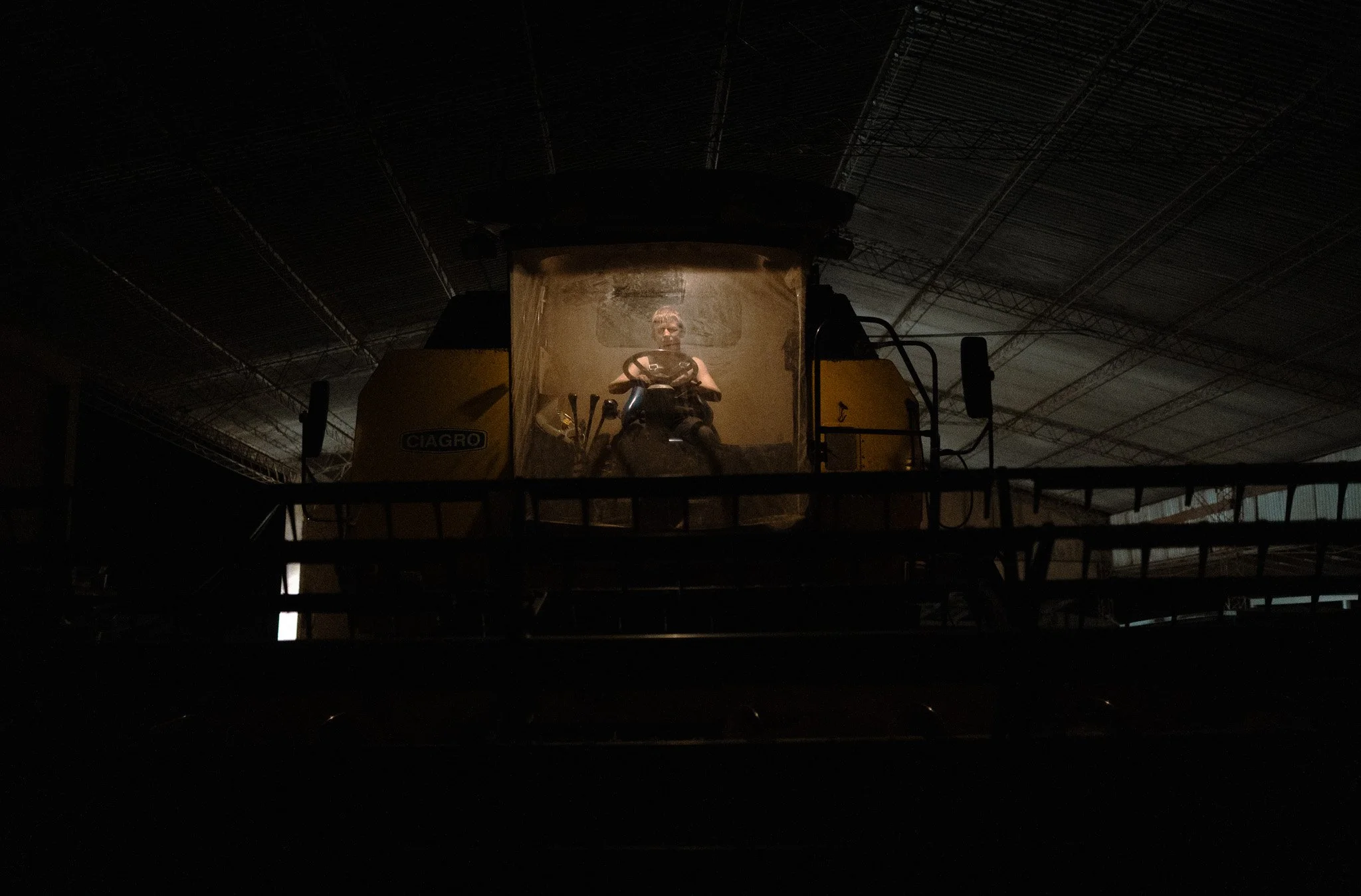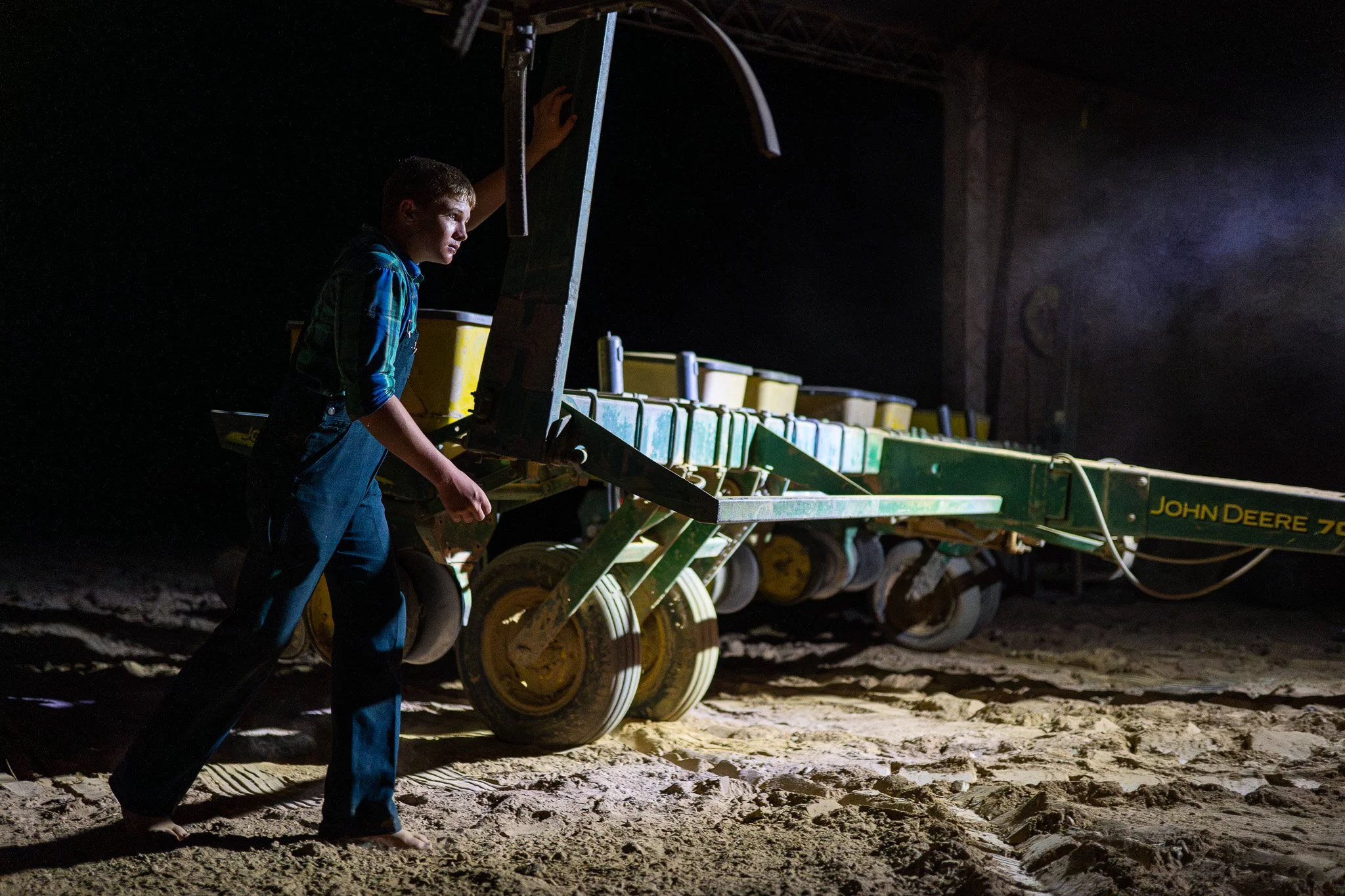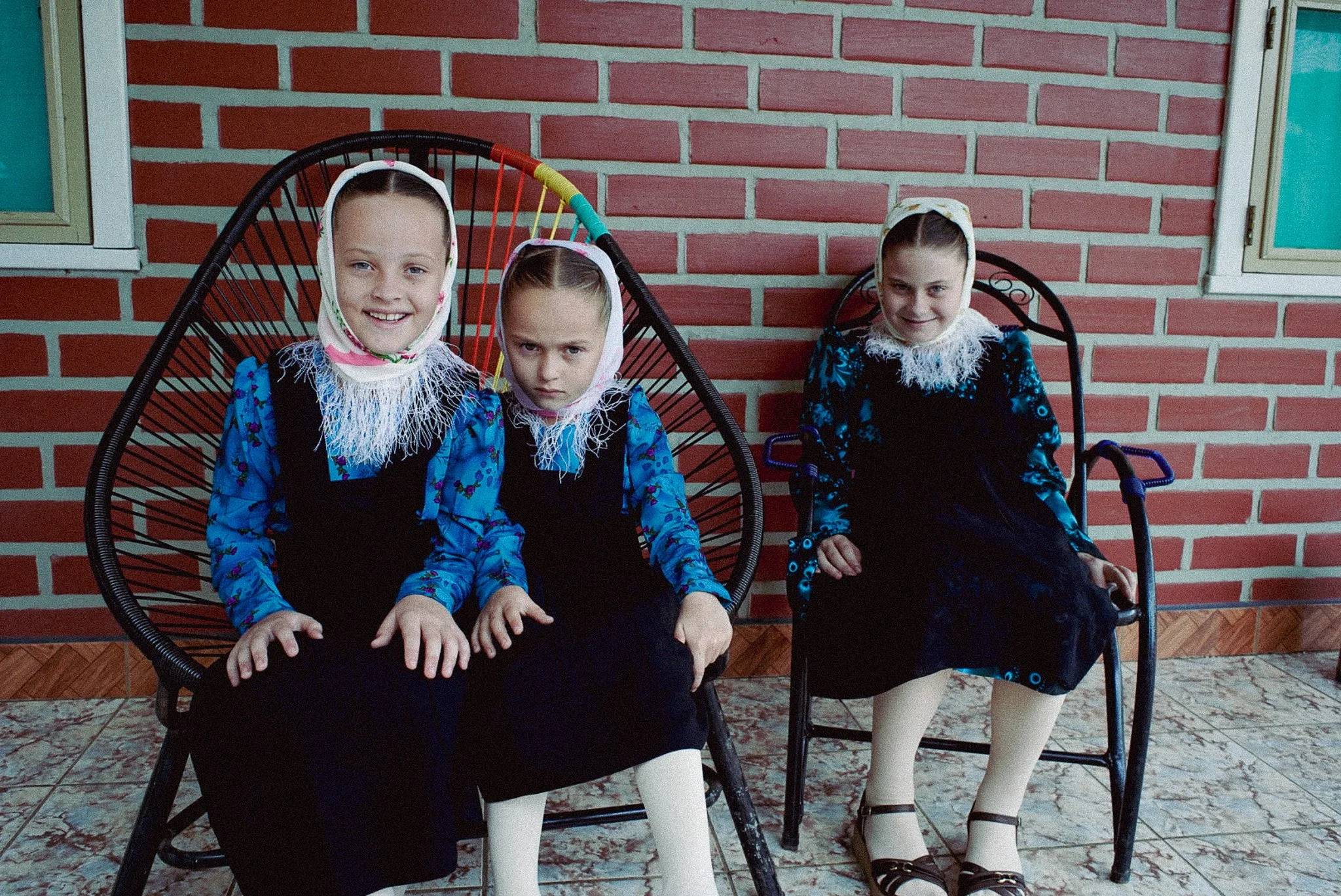Grounded in ethnographic practice, these photographs—shot along the agricultural frontier in Bolivia among Old Mennonite colonies—explores my relationship with those often reduced to stereotypes: destroyers of land and blind believers. This work aims to transcend moral binaries of heroes and villains, as well as simplistic judgments of land transformation under capitalism, to engage with emic notions of land, labor, and otherness.
The camera enables me to connect with the Other through an intense focus and presence directed at what is in front of me. In this context, these photographs carried tensions between empathy and distance from the figure of the colonizer in Latin America. Here, the camera is more than a method, but also a portal for reflections on ethical and political positioning and ways of knowing.
These images represent part of the photography collection and are part of my PhD project at the University of Copenhagen titled The Mennonite Gaze and part of a larger project called ‘Fire and Political Alterity in Amazonia.’







